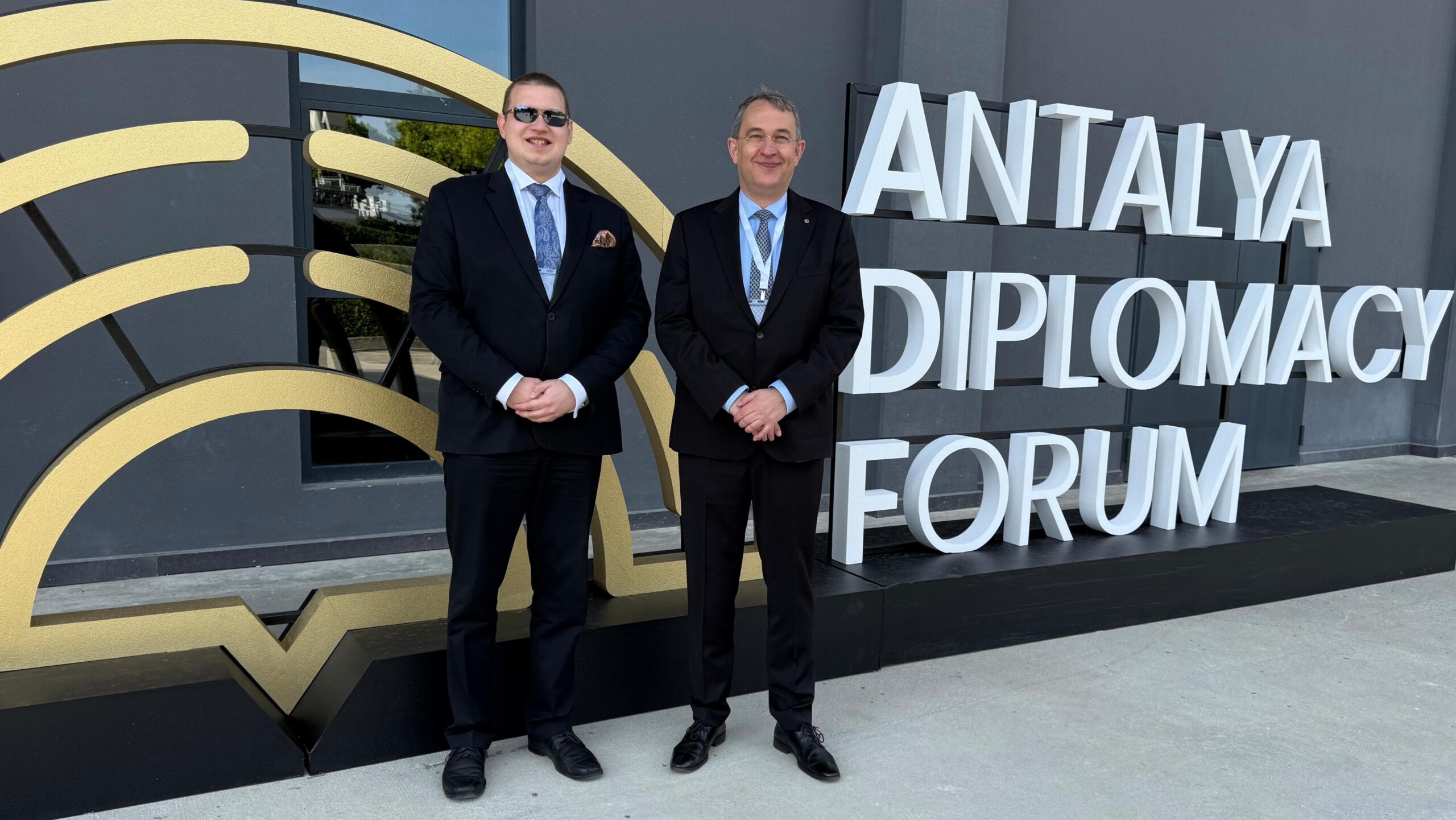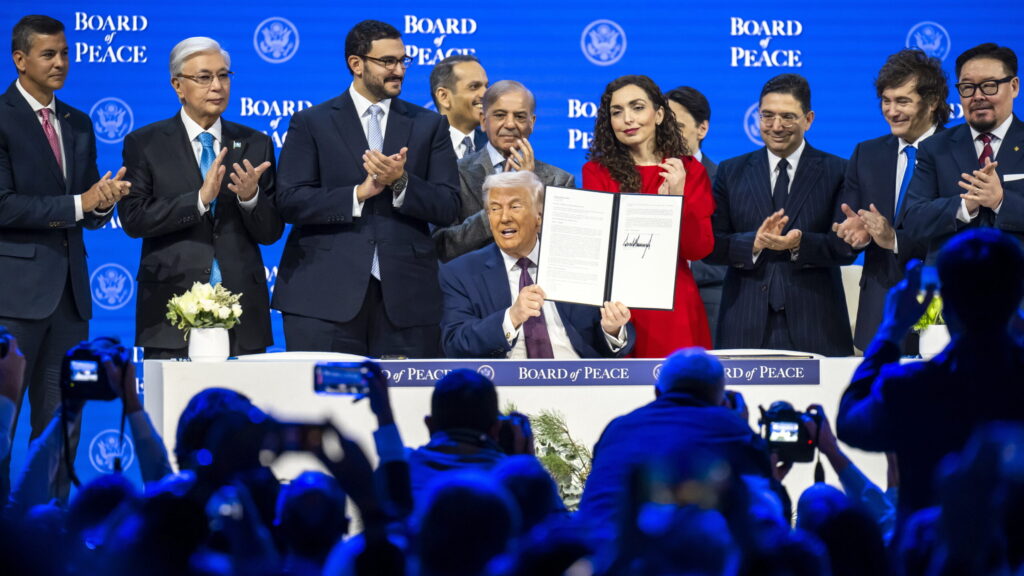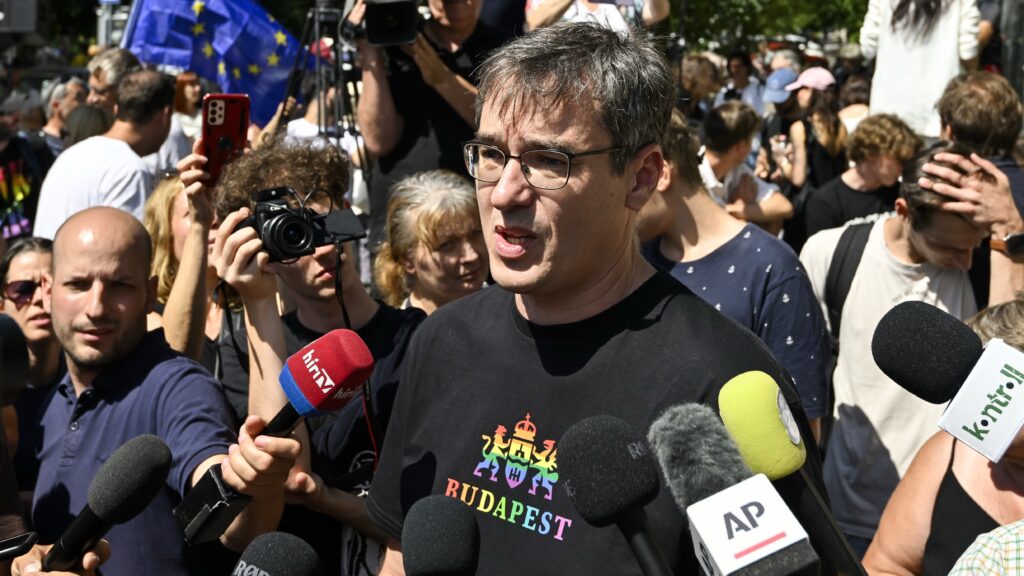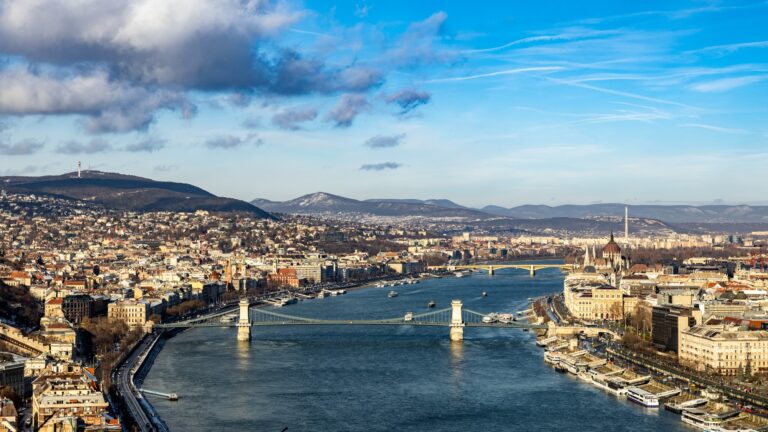In an era marked by shifting geopolitical landscapes, Europe’s economies face growing structural pressures. Amidst stagnation, disrupted supply chains, and intensified global competition, Germany, in particular, is being forced to reassess how it positions its economic interests on the international stage. In this context, the Federal Association for Economic Development and Foreign Trade (BWA Global Economic Network) has emerged as a uniquely positioned actor—operating not only as a traditional association fostering business and trade, but as Germany’s only think tank explicitly focused on economic diplomacy, where foreign policy and economic strategy are deliberately linked. In this interview with BWA’s Chairman of the Board Michael Schumann and Plenipotentiary Extraordinary for Global External Affairs Urs Unkauf we discuss the meaning of economic diplomacy in 2025, the internal tensions shaping pragmatic approaches towards global investments and trade in times of turmoil, as well as the current state of German–Hungarian relations.
Michael Schumann is an established entrepreneur, top executive, and thought leader in international business strategy and economic diplomacy. Appointed to the BWA Senate in 2006, he has been a member of the BWA Board since 2013. He took over the chairmanship of the BWA in April 2018, shaping the association’s direction as a key forum for economic policy and global business engagement. After studying philosophy, German, and American studies, Schumann worked for more than 15 years in the fields of political consulting, public affairs, and public relations, holding leading positions in various agencies, businesses, and media associations. Among other roles, he served as advisor to the former German Prime Minister and Federal Minister, Dr Lothar de Maizière, was a board member of the German Journalists Association Berlin (DJV), and was President of the Berlin Forum for Media, Politics, and Economy (MPW), as well as President of the Lions Club Berlin-Brandenburg.
In 2010, Schumann spent several years in China, where he established contacts for German companies in Shanghai and advised political institutions, municipal decision-makers, and large companies on their internationalization, guiding them to Germany. In 2019, Schumann and then Vice President of the German Bundestag and former German Minister of the Interior Dr Hans-Peter Friedrich founded the China Bridge, which has been established as a public diplomacy forum for Sino–German leadership exchange to strengthen China competence in Germany and the understanding of both peoples for each other.
Urs Unkauf is Plenipotentiary Extraordinary for Global External Affairs of BWA Global Economic Network since July 2025. Before, he served three and a half years as its Federal Managing Director. After his studies in history and sociology, he gained his professional experience in the spheres of public and government affairs, energy policy and foreign trade advisory with a regional emphasis on Central and Eastern Europe, the Balkans and the Greater Caspian Region. Prior to holding top positions at BWA, he was a research associate to a member of the German Bundestag and a visiting researcher at the Azerbaijan Diplomatic Academy (ADA) University in Baku.
His work at BWA emphasizes proactive engagement with global business and political leaders, the Diplomatic Corps in Berlin and emerging markets, mainly in the Global South. He is a sought-after commentator on economic diplomacy in German and international media and maintains active roles in various non-profit organizations dedicated to international affairs and geopolitics. He is the editor and author of various books on the history of German diplomacy. In July 2025, he was also elected as the Chairman of the Board of the German–Azerbaijani Forum.
***
Michael, with Germany’s economy still in a state of stagnation and investors increasingly concerned about the country’s declining competitiveness, what exactly is the role of BWA in this political-economic environment? How does your mission go beyond what trade associations and chambers of commerce traditionally do?
We are no longer living in an age where mere export promotion or trade fairs are sufficient to stimulate economic growth. What Germany lacks is strategic positioning in a geopolitical context that has dramatically changed. That is where we step in. BWA Global Economic Network is Germany’s only institutional framework that consistently thinks in terms of economic diplomacy—meaning, we do not just promote commerce and investments, we integrate economic interests into broader foreign policy strategies. Our work is proactive: aligning businesses with emerging geopolitical trends, opening access to international decision-makers, mediating in volatile markets, and creating what we have called a ‘Global Economic Network’. Established in 2003 and since the beginning financially independent from public grants, BWA today enjoys an excellent reputation in many countries worldwide, with which we have been working in various formats at all relevant levels. Our special focus has always been on developing and emerging markets—the BRICS countries and the Global South, but also economic regions like the Visegrád states, that deserve a deeper understanding which goes beyond the—today in many ways—limited approaches of traditional media.
Unlike most other associations, we operate in different tracks: partly as a think tank, partly as a diplomatic platform which takes part in leading global formats such as the Antalya Diplomacy Forum, Doha Forum or Munich Security Conference, and also as a globally active business intelligence hub. This enables us to advise ministries, embassies, entrepreneurs and investors from Germany and other countries on how to build resilient, mutually beneficial economic bridges. And we do this without being partisan—we lead with strategic foresight.
Urs, given your recent travels to countries of the Global South, and in light of growing protectionist rhetoric in Washington and Brussels, how do you define ‘economic diplomacy’ in practical terms? What does it mean for German businesses in 2025?
Economic diplomacy, in our definition, is the intersection between business, politics and diplomacy. In cases where political approaches are ineffective or blocked, economic ties can foster new forms of dialogue, understanding, and set the ground for win-win situations. That means turning corporate stakeholders into informal ‘ambassadors’—into interest-driven actors who create long-term trust and personal approaches where formal diplomacy often hits a dead end. We should never forget that behind all political and economic structures, we mainly deal with human beings. In practice, we do this through cross-border infrastructure initiatives, participation in leading global conferences, confidential political background talks, and practical support for family businesses and hidden champions operating in complex global business environments and markets. Although these efforts may require additional resources, they are ultimately worthwhile—not only from a financial perspective.
Your mention of protectionism is timely. There’s a fault line developing between systemic openness and economic nationalism. Germany, with its highly export-oriented economy, should be leading efforts to keep global markets open, but instead, we see hesitation. That’s not in our genuine interest as a globally leading economy. We help to reduce that gap by enabling companies to navigate fragmented frameworks—whether that’s complying with US tariffs under the National Economic Security Act 2025, or building bilateral corridors with countries that are currently undergoing transformational processes, but which in most cases still matter for the future of raw materials, technology transfer, and energy supply. In essence, ‘economic diplomacy’ is how we defend economic rationality in a highly politicized, changing world order that is shifting from Euro-Atlantic dominance to a polycentric structure, which has not yet reached a final stage.
Michael, many commentators—including Bloomberg and Nikkei Asia just this month—warn that Europe is becoming economically irrelevant in the context of the US—China decoupling and the increasing alignment of Asia, the Global South, and regions like the GCC countries. How does your work in economic diplomacy seek to reinsert Germany into these emerging global constellations?
Those warnings, unfortunately, are accurate. Europe currently risks marginalization in a world reorganizing itself into plurilateral constellations. If we persist in a reactive, Euro-centric approach—criticizing every alternative alignment without offering credible alternatives—then we will find ourselves sidelined.
‘Europe currently risks marginalization in a world reorganizing itself into plurilateral constellations’
Here again, our approach is different. We treat non-Western regions as strategic equals and partners, not as subjects that need to be lectured first about our way of life before they are worth considering. For example, our long-standing partnerships in China, Central Asia, or the Belt and Road-aligned infrastructure corridors have always been based on equal levels, which doesn’t mean that we have to agree with all their viewpoints and vice versa. This is always a dialogue in both directions—a bridge that you can cross various times from both sides, if the foundation is stable enough. We work with local stakeholders, for instance, industry associations or family offices, based on their experiences and needs—supporting connectivity, vocational education, sustainable transition financing, and governance modernization. This generates enormous trust, and that trust is our strongest geostrategic currency.
Germany must not confine itself to moralizing. It must act as a builder of global systems. And that begins with economic diplomacy grounded in pragmatic long-term cooperation.
Urs, let me press further on that point. From policy forums in Shanghai to BWA-hosted business delegations in the Danube region, you have emphasized ‘strategic neutrality’ as a German foreign economic concept. What does that mean in 2025, when the consensus seems increasingly binary—between the US-anchored Western order and the BRICS or East Asian alternative?
Strategic neutrality does not mean ambiguity. It means agency. And Germany, if it wants to remain a serious economic actor on the global scale, needs to reclaim its agency. The world is no longer bi- or unipolar—just look at the way countries like India, Türkiye, Saudi Arabia, or Indonesia operate nowadays, following their own national interests, regional alignments and development strategies. They navigate between camps not because they are indecisive, but because they pursue their interests without ideological or overwhelming moral rigidity. Under President Donald Trump, the US is also reconsidering an interest-based foreign policy approach, which turns around by 180 degrees compared to the previous administration.
We believe that Germany should also rediscover this posture. At BWA, we promote active non-alignment within the economic sphere—building ties with ASEAN, negotiating private infrastructure deals in Sub-Saharan Africa, initiating university collaborations in the South Caucasus—and yes, of course maintaining dialogue with Chinese institutions and businesses despite all the decoupling narratives of recent years that have turned out to remain mostly fictional, while business continues, more than ever before, to expand globally. It is not about picking sides, it is about shaping spaces where German interests—and hence also our own values—can have a real-world impact.
If anything, the future belongs to stakeholders who can mediate, translate, and innovatively navigate. That is what we encourage our members to do—whether they are family businesses or global corporations.
And that brings us directly to a related tension—one that exists not just between competing global blocs, but within the political camps of the West itself. Trade, for instance, has become an ideological battleground, not just a policy tool. Urs, debates about business and trade have become particularly heated among government representatives in both the United States and Europe. In your view, how do politicians in the West—whether in Washington, London, or Berlin—currently approach trade policy? Is there anything resembling a consensus on this question within think tanks and intellectual debates?
I think what we are witnessing right now is a profound realignment within the West when it comes to trade and economic engagement. There simply is no settled doctrine. In the United States, for instance, conservatives are split between those who champion robust protectionist measures—in the name of defending domestic industry and national sovereignty—and those who remain deeply committed to free market access and global competitiveness.
This divide plays out not only in rhetoric but in concrete policies: from tariffs and ‘Buy American’ legislation to the selective decoupling from China, which now even draws bipartisan support. On the other side, the structural integration of value creation processes between the US and China is far deeper than most public debates insinuate.
In the UK, the Conservative Party post-Brexit has invested heavily in crafting new bilateral trade agreements, but you also see internal arguments over economic nationalism versus an open, outward-looking economic model. Germany and much of continental Europe are experiencing parallel debates, though the contours are sometimes less explicit—often pitting traditional export-oriented factions against voices calling for greater strategic autonomy and reshoring. So, if you look across the Atlantic, what is remarkable is just how unresolved—and, at times, volatile—this conversation has become. There is no ‘Western consensus’ on trade, but it is currently an increasingly polarized field of ideas.
Underlying all this is a deeper anxiety over globalization itself—who it serves, who it leaves behind, and what role Western societies should play in shaping or constraining it.
For us in economic diplomacy, that means operating—not on the assumption of a stable Western trade doctrine, but in a space of ideological contestation and strategic adaptation. And frankly, this absence of consensus is shaping policy outcomes in unpredictable ways, not just in capitals like Washington or Berlin, but for international business as a whole.
Absolutely, and if I may add a brief anecdote here: some time ago, I interviewed Dr George Weinberg, Chairman of Republicans Overseas Germany. In our discussion, he offered a stark assessment of these ideological rifts within the Western camp. Dr Weinberg explained that in the United States, there is a very real divide within the conservative movement—on one hand, the national-conservative faction represented by figures like JD Vance, who advocate for more restrained, less interventionist engagement with the world, and on the other, the so-called ‘neo-conservatives’, who press for a more assertive, interventionist approach to both foreign and economic policy.
Switching to a more specific case, I want to focus on the relationship between Germany and Hungary, as it perfectly crystallizes how these general debates play out on the ground. Germany—especially under the current Christian Democratic-led government of Chancellor Friedrich Merz—has promoted a very clear-cut policy: reinforced distancing from trade with Russia, strict de-risking of economic ties with China, and an overall alignment with broader EU and transatlantic strategies on economic security. Hungary under Prime Minister Viktor Orbán, by contrast, has positioned itself at the other end of the spectrum, pursuing a strategy defined by connectivity, openness to the East, and ongoing commercial relationships with Russia and China.
Michael, how do you perceive this contradiction? After all, German and Hungarian businesses—particularly in strong sectors like the automotive industry—remain deeply interwoven, despite these pronounced political differences. What does this mean for the future of German–Hungarian economic cooperation, and is there a risk that politics will ultimately disrupt this vital partnership?
Indeed, this represents one of the most significant contradictions within today’s European political economy. At a superficial level, Berlin and Budapest increasingly diverge, especially regarding EU policies towards Russia and China, the purpose of sanctions, and the fundamental debate of national sovereignty versus supranational integration. The extent of this divergence raises questions about the stability of their cooperation. Yet beneath this political tension, their economic relationship not only persists—it flourishes.
Consider the automotive supply chain as a primary example. In 2025, Hungary remains a central hub for German industrial investment in Central and Eastern Europe. The BMW plant in Debrecen exemplifies this dynamic—one of Germany’s largest greenfield investments in the region, constructed according to state-of-the-art digitalization and sustainability standards. Audi’s operations in Győr further cement the city’s role as Europe’s leading engine production location and a significant centre for electric motor manufacturing. Simultaneously, Mercedes-Benz has substantially expanded its Kecskemét facility, reinforcing Hungary’s strategic importance within its European manufacturing network—a status repeatedly highlighted by corporate leadership and industry reports. Accompanying these flagship operations, German automotive suppliers like ZF have intensified their presence across Hungarian industrial zones, deepening bilateral supply-chain integration.
These examples underscore that the economic linkage between Germany and Hungary is neither hypothetical nor superficial but a robust, multilayered reality. From original equipment manufacturers (OEMs) to tier-one suppliers, there is a systemic interdependence built upon decades of trust, shared innovation, and complementary labour markets. This economic relationship persists despite shifting political and geopolitical tensions, demonstrating how industry can anchor bilateral relations, provide stability, and sustain European competitiveness beyond daily political narratives.
‘The economic linkage between Germany and Hungary is neither hypothetical nor superficial but a robust, multilayered reality’
Beyond specific company examples, broader economic data further underscores the depth of this connection: approximately 25–30 per cent of Hungary’s total exports are linked to the automotive sector, with Germany absorbing roughly a quarter of Hungary’s foreign trade. This relationship is systemic and strategic, reflecting long-term planning horizons measured in decades rather than electoral cycles or geopolitical fluctuations.
It is true that Berlin has recently adopted a notably different tone. Under Chancellor Merz, Germany’s foreign economic policy aligns closely with the European Commission’s ‘de-risking’ strategy, prioritizing reduced dependency on traditional trading partners, particularly China and Russia. In contrast, Hungary under Prime Minister Orbán pursues an opposing strategy of diversification through increased global connectivity, notably also through Hungary’s close ties with the Turkic world. This includes active engagement in China’s Belt and Road Initiative, energy partnerships with Russia (eg, Paks II nuclear contracts), and advocacy for a multipolar global trade system.
Yet interpreting these approaches as mutually exclusive would be a mistake. Particularly among German family-owned companies, we observe pragmatic alignments. Many adhere to EU-influenced compliance standards while simultaneously maintaining complex global value chains. Firms may reduce direct Chinese procurement to comply with de-risking policies, yet simultaneously expand Hungarian operations indirectly supported by Chinese co-investments or technology transfers.
From the perspective of economic diplomacy, BWA maintains a clear stance: political frictions should not undermine functional, mutually beneficial economic ties cultivated over decades. Strategic orientations may differ, yet the economies of Germany and Hungary remain deeply interconnected, especially in industrial manufacturing, research and development, and logistics. Abrupt political disruptions—such as severing supplier relationships, withdrawing investments, or publicly criticizing partners—would prove economically self-destructive.
The regional context is particularly important because Hungary’s strategic geographic position and diplomatic initiatives significantly impact broader geopolitical dynamics in Central Europe. Hungary’s participation in the 14+1 cooperation format with China, alongside its diplomatic overtures toward BRICS+ nations, positions it as a critical—albeit sometimes contentious—gateway for broader geopolitical trends influencing Central Europe. Rather than outright dismissal, Germany, aiming for strategic leadership, should proactively engage Hungary as a constructive dialogue partner rather than reprimand.
Additionally, a generational shift is emerging. Younger economic stakeholders in both Germany and Hungary are less ideologically driven and instead prioritize operational resilience, innovation, and sustainability. They recognize resilience necessitates redundancy—including geographic, input, and political diversification.
Thus, while there exists an evident contradiction between political narratives, there is equally significant opportunity: modelling a dual-track relationship wherein strategic disagreements coexist with robust industrial cooperation, and respect for national policy choices harmonizes with deeper European integration. Effective economic diplomacy practically addresses these contradictions by facilitating dialogue between divergent political actors, promoting flexible compliance strategies for businesses, and proactively cultivating regional partnerships that insulate economic ties from political volatility. It should therefore focus not on choosing sides but on constructing durable connections capable of withstanding cyclical crises.
Thank you for sharing these insights, Michael. In addition to your role as Chairman of the Board of BWA, you are also the Chairman of China Bridge, a think tank which aims to improve Sino–German relations and foster Chinese competence in Germany. What motivated you to establish this institution in 2019, and what role do civil society stakeholders play in international relations, especially when there are political tensions?
Before explaining that, I need to briefly elaborate on my own experience with China. I first came to China in 2010 through my own company back then; I had no previous connection to the country. I ended up staying there for five years, met my current wife there, and travelled back and forth between the two countries regularly for another five years until the COVID-19 pandemic in early 2020. What fascinated me about China was its innovative strength, meritocratic aspirations and ability to learn from others and develop further in line with its own strengths, which create people-centred approaches to real challenges. Meanwhile, I have led numerous German delegations to China and, in turn, supported and accompanied Chinese cities, provinces and companies in establishing contacts in Germany.
Together with other long-standing experts on China, I came to the conclusion in 2019 that an institutionalized form of dialogue was needed to facilitate expertise and mutual understanding in a structured and confidential setting. We were guided by the founding principle of the Atlantic Bridge, which is to build trust and personal relationships between Germans and Americans. With the then Vice President of the German Bundestag and former Federal Minister Dr Hans-Peter Friedrich as founding chairman, we finally established the association at the headquarters of BWA, but we are legally fully independent. Since then, we have been organizing regular background discussions and high-level dialogue formats in confidential circles with decision-makers from politics and business, as well as publicly accessible formats dedicated to exchange in science, art and culture.
‘It is my conviction that only by looking at the world through the eyes of others can we see things holistically’
It is my conviction that only by looking at the world through the eyes of others can we see things holistically. This applies in particular to German–Chinese relations, but also in general when people from different cultural and geographical areas meet. With regard to China in particular, there are often strong opinions expressed by people who have never been to China or know any Chinese people personally. We want to counter this with an informed perspective—constructive and without foam at the mouth, but clear in its core message: without China, we cannot tackle the big issues of this century. For the future, I hope that we will be even more successful in creating and promoting China expertise and opportunities for the younger generation to gain their own experience of China.
I recognize the value of offering young people the opportunity to gain their own experience and form independent perspectives. I wish you and your colleagues all the best for your future endeavours. Urs, you are also leading a platform focused on bilateral relations. Earlier this month, you were elected Chairman of the Board of the German–Azerbaijani Forum. Could you share more about the forum’s core activities and the strategic relevance of Azerbaijan for Germany?
Gladly, but I need to back up a bit. I visited Azerbaijan for the first time as part of a programme for young scientists organized by the Baku International Multiculturalism Centre. This gave us the opportunity to engage in direct dialogue with Azerbaijan’s various religious communities. Although around 90 per cent of Azerbaijan’s population is Muslim, other religious communities, such as Christians and Jews, not only enjoy full rights, but state policy also specifically promotes interfaith dialogue and peaceful coexistence based on tolerance and mutual respect. I was deeply moved and fascinated by the Azerbaijani model of multiculturalism, which is why I now represent the centre in Berlin on an honorary basis. In addition, in 2021, I had the opportunity to spend several months as a visiting researcher at the School of Public and International Affairs at ADA University in Baku, where I focused intensively on geopolitics, energy and security policy in the South Caucasus and the Caspian Region.
During this period, Azerbaijan regained the territories of Karabakh and the adjacent territories, which had been occupied by Armenia for over 30 years in violation of international law, thereby restoring its territorial integrity. The Armenian–Azerbaijani conflict had tied up numerous resources in other areas for many years, which were now freed up for new initiatives. Azerbaijan is not only one of Germany’s ten most important suppliers of crude oil, but has also become a key supplier of natural gas to Europe via the Southern Gas Corridor. I would also like to briefly mention the historical connection with Germany: at the beginning of the 19th century, Swabian settlers who had been forced to leave their homeland due to religious tensions found a new future in what is now Azerbaijan. The German heritage is honoured and cherished, and President Ilham Aliyev is personally committed to preserving these traditions.
I had been familiar with the German–Azerbaijani Forum for many years through its regular events in Berlin, where I was sometimes invited to speak as an expert. Due to the global pandemic and the circumstances surrounding it, the forum’s work has been less active in recent years than before. In addition, Azerbaijan and all those who had been committed to bilateral relations became the target of a media campaign whose accusations are completely unfounded. As a result, the public image of Azerbaijan, which in no way reflects the reality on the ground, needs to be corrected, and this is precisely where the work of the forum starts: to build trust through personal exchange, encounters, and dialogue formats. We bring together leading personalities from politics, business, science, and diplomacy in dialogue, creating the necessary framework for this.
When the long-standing Chairman of the forum, former State Secretary Hanns-Eberhard Schleyer, asked me if I could imagine taking over the chairmanship, I felt very honoured and, given my deep friendship with Azerbaijan, accepted the responsibility for the forum and was ultimately elected unanimously by the general assembly. All of the relevant areas mentioned are represented on my board, and we can also draw on the expertise and networks of five former State Secretaries, which is something not many associations can do.
Azerbaijan is a strategically and economically important partner country for Germany. The forum will continue to contribute to building bridges of trust and identifying and realizing joint opportunities. Azerbaijan’s geostrategic location along the Middle Corridor from Europe through the South Caucasus and the Caspian Sea to Central Asia and the Far East gives the country an indispensable position for all serious global projects. With last year’s COP29 World Climate Congress, in which we as BWA participated with our own side event at ADA University, held in partnership with the Greater Caspian Association from Switzerland, Azerbaijan successfully demonstrated that it is able to host major events of global relevance in an exemplary manner. Peace talks with neighbouring Armenia are currently developing positive momentum, a draft peace treaty is on the table, and Azerbaijan is ready to open a new chapter of regional cooperation.
Against this backdrop, I am very much looking forward to this new task and cordially invite all those interested in Azerbaijan, the South Caucasus, and the Caspian region to get involved with us—our doors are always open for dialogue, exchange, and understanding between our countries.
That is a highly relevant initiative, Urs. I wish you and the German–Azerbaijani Forum every success in this pivotal phase for bilateral relations with Germany.
Dear Michael, dear Urs, thank you very much for sharing your perspectives on these pressing matters and for taking the time to speak with us. I wish you continued success in contributing to what Germany and Europe increasingly require in these uncertain times: dialogue instead of division, and engagement with one another rather than discourse about one another.
Related articles:







